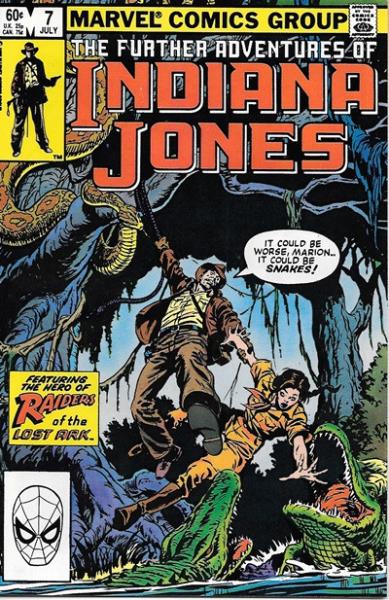Was Raiders of the Lost Ark a Rabbinical Parable?

Stories are the prism through which we view the world.
Whether we agree with them is completely and absolutely immaterial. What matters is that we were exposed to them. They affect how we view the cosmos, no matter if we like how those stories do that, or not.
From my article on Eastern Story Structure.“Hakawati, is the Arabic tradition of storytelling wherein each story must have…
and teach a moral lesson. I suspect this tradition is more Middle Eastern than specifically Arabian because the story of Jonah fits perfectly within its structure.
Jonah’s story is rather unsatisfying to a Westerner if you read the whole thing.
Jonah is ordered by God to go to Nineveh, the capital of the Assyrian Empire, and deliver a command from Him to stop sinning. Jonah, like all of his people and, well, everyone else who had come into contact with Assyria wants them all dead. So he refused to deliver God’s message and ran away to sea. A terrible storm came up while the ship was at sea. The crew drew lots to see who was to be sacrificed to appease the waters. The never-lucky Jonah lost and was chucked over the side. God sent a whale to swallow Jonah. Jonah repented and God had the whale spit, Jonah, onto a shoreline that had decent access to Nineveh. Jonah delivered the message to the hated Assyrians and then went to a nearby hill to watch God’s wrath descend on Nineveh.
And it didn’t.
The End.
When I was in Sunday school the whale part of the story was the only thing that our teacher concentrated on. Mostly because a giant whale story would keep squirming seven-year-olds occupied while their parents had coffee and donuts after the service. It worked because that part of the story was the closest thing that conformed to the western idea of the three-act story structure with an introduction, an inciting incident, rising tension, climax, and then denouement.
The original purpose of the story however wasn’t to entertain, it was to teach.”
I have no real reason to believe that Stephen Spielberg is a good man and a few hints that he is a rather bad man. Either way he was born in the mid-1940s and would have gone to Hebrew School when he was a boy starting at about age six or seven. The same thing applies to his screenwriter Lawrence Kasden. The stories they were told at that age would affect how they see the world because, as I say again, stories are the prism through which we view the world.
I had stated in my RE:View of Raiders of the Lost Ark, “Think about it. If Jones had done nothing in this story but teach at Marshall, he would have changed nothing that eventually happened. The Nazis would have grabbed the amulet from Marion, found the Ark and melted themselves without any help whatsoever from Indiana Jones.”
The comments from that article included this exchange:
Shimson; “…I’ve heard this said before. This isn’t necessarily true. The inscription from the half of the amulet that the Nazis didn’t get didn’t only discuss altering the height of the staff. As a fan site says:
‘The headpiece included a dire warning to not disturb the Ark of the Covenant, giving Indy the knowledge needed to survive the Ark’s power later, though this warning was either forgotten, not on the side that was imprinted onto Toht or simply ignored by Belloq and the other Nazis present.’
I’m going with, this warning was not on the side in the possession of the Nazis, thus making the story have an actual point.”
To which I replied; “Sorry, but no. Indy was receiving a stream of dire warnings for the entire movie. The warning on the amulet was just one more of them. All of Indy’s friends were telling him not to screw around with it. Belloq on the other hand was way too determined to dick around with the Ark to be put off by a warning label. He had Nimrod’s hubris, he was going to use his “hotline for speaking to God” whether God wanted to hear from him or not. Indy learned a bit of humility but that was his lesson and his lesson alone.”
And it suddenly struck me that as inadvertent as it was, the whole point of the story could be reduced to, Indiana Jones needed to learn humility. And he did.
The question posed: “Was Raiders of the Lost Ark a Rabbinical Parable?”
I don’t know the answer since being a Christian, I never went to Hebrew School.
Discuss in the comments.
Okay, I’m done here.

